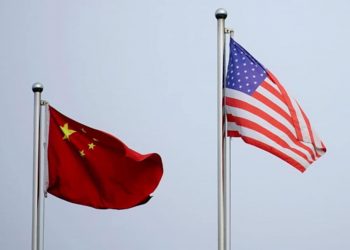AFP, Success of Shenzhou gives liftoff to goals
BEIJING China said Thursday that it would launch its next Shenzhou mission in “one to two years,” but would not speculate on whether it might send a probe to the Moon or to establish a space station.
.
“On the basis of summing up the experience of the successful launch of the Shenzhou V manned spacecraft, the country will send its next Shenzhou craft in one to two years,” said Xie Mingbao, a spokesman for China's space program.
.
But he refused to be drawn into a specific timetable, saying that China's space program was still in its infancy.
.
“Our space program has just begun,” he said. “And in developing China's space program, we're not actually planning to catch up with the Mir space station or international space station at this moment.”
.
“In the near future, we plan to realize the following objectives: In a few years, we plan to resolve the problem of space walking; later on we plan to make progress in the rendezvous and docking of space crafts.”
.
Analysts have speculated that China is likely to aim for a space station in 2008, and, in close contest with India, an unmanned mission to the Moon the same year.
.
China, which has benefited from Russian technology and training in establishing its space program, did not rule out closer cooperation with the United States in future years.
.
“Of course in this process, we're not ruling out the possibility of getting external assistance,” he said. “The U.S. and Russia have a lot more experience than we do in this regard. We are very willing to learn from them.”
.
Shenzhou 5 touches down
.
Jim Yardley of The New York Times reported from Beijing: With parachutes breaking its fall to Earth, the Shenzhou 5 spacecraft made a safe landing on the grasslands of Inner Mongolia early Thursday morning, the state media reported, completing an apparently successful mission that established China as only the third nation to send a person into space.
.
State television reported that the touchdown occurred at 6:23 a.m., roughly 21 and a half hours after the spaceship blasted off Wednesday from the Gobi Desert carrying the nation's first “taikonaut,” Yang Liwei, a lieutenant colonel in the Chinese military. Within minutes, grainy images of search teams inspecting the Shenzhou 5 re-entry capsule were televised to the nation. The launching and the landing were not televised live.
.
The re-entry capsule separated from the propulsion module at 5:35 a.m. and began descending toward Earth, according to the official Xinhua press agency. State television reported that the capsule entered China's air space at about 6 a.m. and continued its descent to the ground.
.
Yang took a short congratulatory telephone call from the Chinese prime minister, Wen Jiabao. The 38-year-old astronaut was reported to be in “good spirits” and was first shown in brief television footage emerging from the capsule and then waving to cameras in his space suit.
.
The safe landing meant that China could claim standing as one of the world's leading spacefaring nations at a time when the U.S. shuttle program remained grounded following the Columbia crash and the Russian program was suffering from budget restraints. India and Japan, while offering congratulations to China, are now preparing to join the manned space club.
.
“It's significant that we now have a third nation to send a man into space,” said Roger Launius, the former chief historian for the National Aeronautics and Space Administration.
.
But Launius noted that the mission was making few waves in the United States and Russia, where sending astronauts into the near-orbit of the earth has been commonplace.
.
“In the overall scheme of things, this is not a technologically mesmerizing event,” Launius said. “A lot of people are saying, “Been there, done that.”
.
In China, though, the Shenzhou 5, or Divine Vessel, has carried great political and symbolic significance for a nation eager to be regarded as a technologically advanced and modern. The mission also carried enormous political risks, since an unsuccessful outcome would have been seen as a devastating failure of China's new political leadership. Instead, top leaders hope to bask in some of the mission's reflected glory.
.
Throughout Wednesday, the government-run state television network, CCTV, provided exhaustive coverage of the orbiting spacecraft, a marked contrast to the scant information provided before the launch.
.
By the end of the day, the formerly obscure Yang was all over television and the Internet.
.
President Hu Jintao was shown delivering a farewell speech to the astronaut not long before he boarded the space capsule. Hu was also shown wearing dark sunglasses and looking skyward at the launching site as the spacecraft lifted into the sky.
.
Oddly missing Wednesday was Jiang Zemin, Hu's predecessor, whose 1992 decision put China on the path toward sending a man into space.
.
Jiang remains the head of the Chinese military, which ultimately oversees the project, and there had been speculation that he and Hu might jockey for credit for the Shenzhou's success. Within an hour of the capsule's safe landing, however, Chinese media were reporting that Jiang had made a congratulatory call to mission control.








